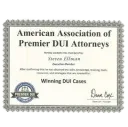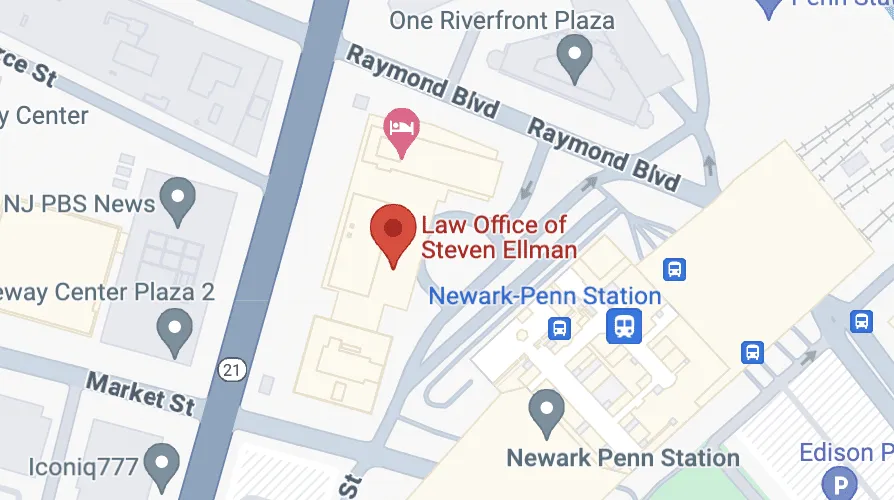Will You Get Jail Time for Third DUI Offenses in New Jersey?
Will you get jail time for third DUI offenses in the state of New Jersey? We take a closer look at the outcomes and your options in this blog. Read more here.
Are you facing the possibility of jail time for third DUI charges in New Jersey? A third offense is treated far more seriously than the first two and often comes with strict penalties.
New Jersey law mandates a minimum jail sentence for a third DUI, and many drivers are unsure what that actually means for them. The legal process can feel overwhelming, especially with prior convictions already on record.
Today we’re taking a closer look into what jail time for third DUI means, the sentencing guidelines in New Jersey, and what legal options might still be available to you.
What Qualifies as a Third DUI in New Jersey?
Getting charged with a third DUI in New Jersey means you’ve already had two prior DUI convictions. But not all DUI cases are counted the same way. Timing matters, and so does how the court views earlier charges.
There are three main points to understand when it comes to what qualifies as a third DUI in this state:
- The time between DUI convictions
- What counts as a prior offense
- How the law treats out-of-state DUIs
The Time Between DUI Convictions
New Jersey uses something called the “step-down” rule. If ten or more years pass between your second and third DUI, the court may treat your third as a second offense instead.
It can affect the length of your license suspension, the size of the fines, and the jail time you’re facing. But this rule doesn’t apply if the gap between your first and second offense was less than ten years. That means even a long stretch of clean driving won’t always change how the court handles your case.
What Counts as a Prior Offense
A DUI conviction from any New Jersey court counts as a prior offense. It includes cases involving breathalyzer refusals, as those are treated the same as a DUI under state law.
Even if your earlier case ended with a plea deal or probation, it can still count as a conviction. That makes it harder to avoid harsh DUI legal penalties the third time around.
How the Law Treats Out-of-State DUIs
If you’ve been convicted of a DUI in another state, New Jersey may count that offense as well. This depends on whether the other state’s DUI laws are similar to New Jersey’s.
If the laws match closely enough, the court will likely include that conviction when deciding if you qualify for a third DUI. This can bring much steeper consequences of DUI charges, including jail time.
DUI Sentencing Guidelines in New Jersey
New Jersey has strict DUI sentencing guidelines, and the penalties grow more serious with each conviction. A third DUI offense falls into the most severe category.
Judges have less flexibility, and many of the penalties are set by law. If you’re dealing with a third charge, you can expect the court to follow these rules closely. There are four major areas the sentencing guidelines cover:
- Jail time and mandatory minimums
- Fines and surcharges
- License suspension
- Ignition interlock device requirements
Jail Time and Mandatory Minimums
For a third DUI conviction, the court must sentence you to a minimum of 180 days in jail. This is not optional. The law requires it.
In some cases, the judge may allow part of that sentence to be served in an approved treatment facility, but only if the program is residential and lasts at least 90 days. If you don’t complete a qualified program, you’ll serve the full time behind bars.
Fines and Surcharges
A third DUI comes with steep financial costs. You’ll pay a fine of $1,000, plus several mandatory fees and surcharges.
These can include state funds, alcohol education contributions, and ongoing yearly surcharges from the Motor Vehicle Commission. The total cost can easily reach several thousand dollars.
License Suspension
Your license will be revoked for eight years. This isn’t just a suspension.
It’s a full revocation, which means you’ll need to reapply once the period ends. Driving during this time can lead to even more charges, including jail time and extended penalties.
Ignition Interlock Device Requirements
If you want to drive again after your suspension, you’ll have to install an ignition interlock device. This device checks your breath for alcohol before letting the car start.
You’ll be required to keep it installed for one to three years after license restoration. Any violations while using it can lead to further punishment or another suspension.
Jail Time for Third DUI: What to Expect in New Jersey
Jail time for third DUI convictions in New Jersey is not just a possibility-it’s a requirement. The law makes it clear that repeat offenders will face jail, and judges have very little room to make changes.
If you’re charged with a third DUI, you need to know how much time you’re facing, how it can be served, and whether there’s any way to reduce it. There are three main points to understand about jail time in these cases:
- Mandatory minimum sentence of 180 days
- How treatment programs may reduce jail time
- Limited options for work release or probation
Mandatory Minimum Sentence of 180 Days
Under New Jersey law, a third DUI conviction carries a mandatory jail sentence of 180 days. This is not something the judge can waive. Unlike a first or second offense, which might involve shorter jail time or even probation, the third conviction comes with hard rules.
If convicted, you must serve at least six months in county jail. This rule applies no matter how much time has passed since your last DUI or how cooperative you are in court.
How Treatment Programs May Reduce Jail Time
The only way to reduce this jail time is by entering a court-approved inpatient alcohol treatment program. If the judge agrees, up to 90 days of the required 180 can be served in the program.
The treatment must be full-time and residential. Outpatient care doesn’t count.
Once the program ends, the court will usually require you to serve the rest of the sentence in jail. If the program is cut short or violated in any way, you may lose credit for time served.
Limited Options for Work Release or Probation
In some states, third-time DUI offenders can get work release or serve their sentence under strict probation. That’s not the case in New Jersey.
While a judge may grant some flexibility in rare cases, it’s not common. The law is strict, and courts take third offenses seriously. Even if you qualify for treatment time, you should still expect to spend weeks or months behind bars.
Legal Defenses and DUI Lawyer Options
A third DUI charge in New Jersey can feel like the end of the road, but there are still ways to fight the case. Having a skilled DUI lawyer can make a big difference in how the process plays out.
Even if the facts seem clear, there may be issues with the arrest, the traffic stop, or the way tests were handled. There are three common legal defenses people use in DUI cases:
- Challenging the traffic stop
- Questioning how tests were given or processed
- Looking for problems with officer conduct or reports
Challenging the Traffic Stop
One of the first things a DUI lawyer will look at is the traffic stop itself. Police need a valid reason to pull you over.
If the stop wasn’t legal, then anything that happened after-like field tests or breath tests-might not be allowed in court. A good lawyer will ask whether the officer had a clear and lawful reason to stop your car in the first place.
Questioning How Tests Were Given or Processed
Breath tests and field sobriety tests have to be done the right way. Machines must be working properly, and officers must follow training guidelines.
If there were mistakes during the testing process, your lawyer may be able to get some of the evidence thrown out. Sometimes blood or breath samples weren’t handled the right way. That can raise questions about whether the results are accurate.
Looking for Problems with Officer Conduct or Reports
Police officers must follow clear rules during a DUI stop. If they didn’t follow proper steps, or if the arrest report has gaps or errors, those mistakes can work in your favor.
Your DUI lawyer may compare video footage with written reports to find differences. Even small problems in how the case was handled can lead to better outcomes for the person charged.
Find the Right DUI Lawyer
Jail time for third DUI offenses in New Jersey is almost always required, but the full impact goes far beyond that. From legal penalties to lasting personal setbacks, the effects are serious. Understanding the law and getting the right help can make a big difference in how your case turns out.
If you’re facing DUI or serious traffic charges, you want someone with real experience in your corner. For nearly four decades, I’ve taken on complex DUI and DWI cases with strong, results-focused defense. I take every case personally and fight hard for my clients. Your consultation is free and confidential.
Get in touch today to find out how we can help with your case!














